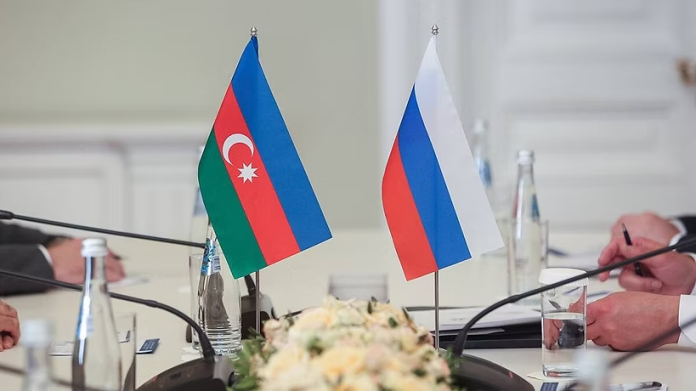Another sharp deterioration of relations between Moscow and Baku, caused by the detention of ethnic criminal group members in Russia, escalated into a major diplomatic crisis. Azerbaijan retaliated by cutting off cultural and parliamentary contacts, launching an anti-Russian media campaign and detaining journalists from the Russian news agency.
Escalation chronology
On 27 June in Yekaterinburg, Russian law enforcers carried out an operation against an ethnic criminal group suspected of a series of murders and assassination attempts between 2001 and 2011. About 50 people were detained, with two (brothers Ziyeddin and Huseyn Safarovs) dying of heart failure during the operation, according to preliminary reports. The Investigative Committee emphasised that the group was also involved in a mass alcohol poisoning that killed 40 people in 2021.
Baku reacted immediately. The next day, on Saturday, the Azerbaijani Foreign Ministry summoned a Russian diplomat, claiming “brutal ethnic killings.” A parliamentary delegation also cancelled a visit to Moscow, calling the actions of Russian security forces “extrajudicial.” Furthermore, the Ministry of Culture curtailed all Russian cultural events, including concerts, exhibitions and festivals.
The crisis reached its climax on 30 June when Azerbaijani security forces blockaded the Russian media office in Baku and detained the chief editors, calling them “FSB agents.” The Russian Foreign Ministry summoned the Azerbaijani ambassador for an explanation, with the Kremlin expressing “regret” over the disruption of contacts.
Political and economic overtones
Azerbaijan’s state media launched an aggressive campaign against Russia. AzTV accused Moscow of “imperial ambitions,” domination over other nations and “occupation of Azerbaijani lands.” Journalist Afgan Mukhtarli called to “burn the Russian embassy” after the events in Yekaterinburg.
Local media also published a video showing detained Russians walking behind each other with their hands behind their heads.
Against the backdrop of the diplomatic crisis, the economic damage to Azerbaijan from Russia’s actions in Ukraine has also emerged. Russian military strikes on Ukrainian oil refineries in June 2025 affected key assets of Azerbaijan’s state-owned company SOCAR. Kremenchuk Oil Refinery, destroyed by the strikes, used to transporting 1.3 million tonnes of Azeri Light oil annually.
For Baku, severing ties would result in a strategic loss, given that Russia has been an investor in joint projects for decades, from the Trans-Caspian Gas Pipeline to oil production in the Caspian Sea. Moreover, remittances of Azerbaijani workers from Russia generate a significant share of Azerbaijan’s GDP, and dependence on Russian transport corridors remains high, geopolitical experts say.
President Vladimir Putin has repeatedly called Azerbaijan a “friendly country” and “strategic partner,” especially noting Baku’s role in resolving the Nagorno-Karabakh conflict. However, after the victory in Karabakh, analysts say, Azerbaijan has embarked on a course of independence, including support for Ukraine and co-operation with Israel to the detriment of relations with Iran and Russia.
Key friction began as early as December 2024, when Azerbaijan blamed Russia for the crash of its plane near Aktau, which resulted in the deaths of 38 people. This was followed by the closure of the Russian House in Baku and pressure on Russian media based in Azerbaijan.
The current crisis is the deepest in the two countries’ relations in recent years. Although the Kremlin stresses its interest in dialogue, Baku is defiantly cutting ties. Meanwhile, Russia faces challenges in planning military action in Ukraine, as it simultaneously tries to limit the military potential of the Ukrainian Armed Forces by striking key facilities and not to harm the interests of third countries involved in the Ukrainian economy.
